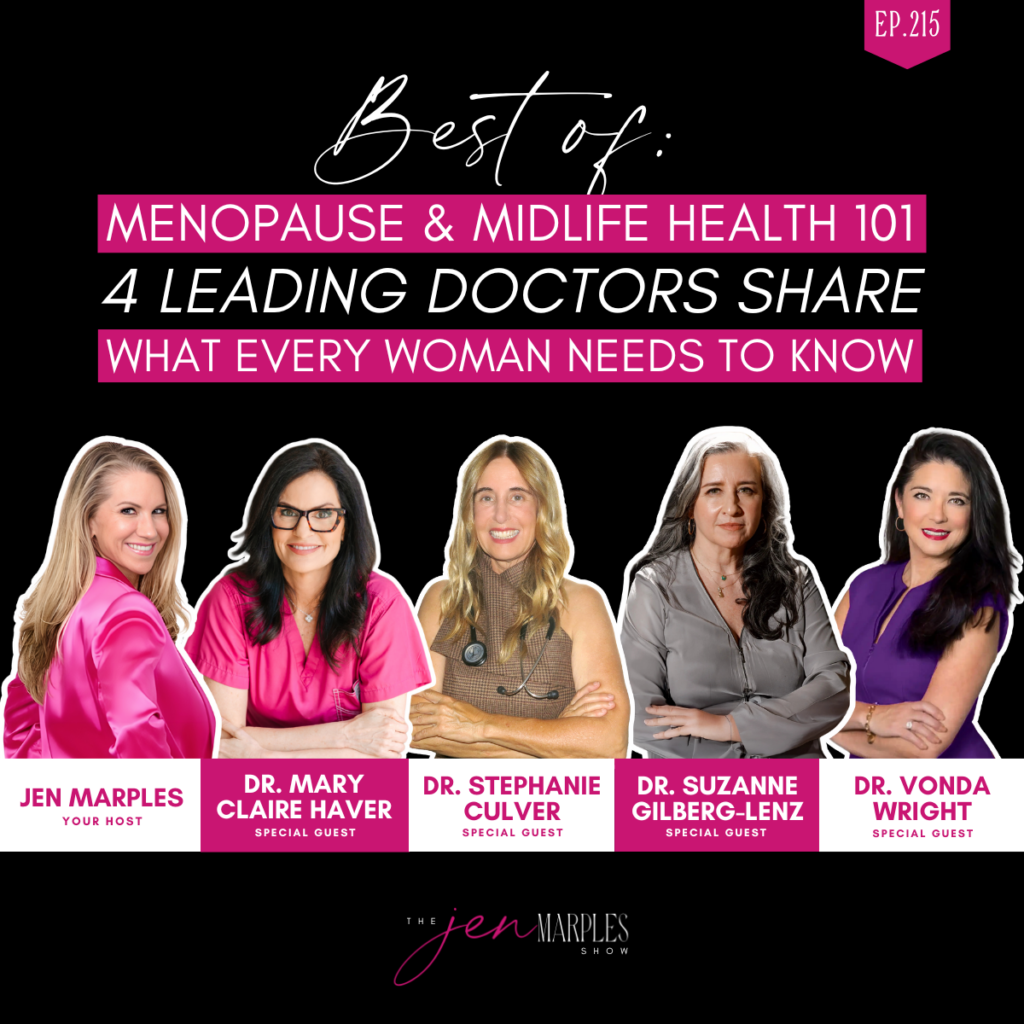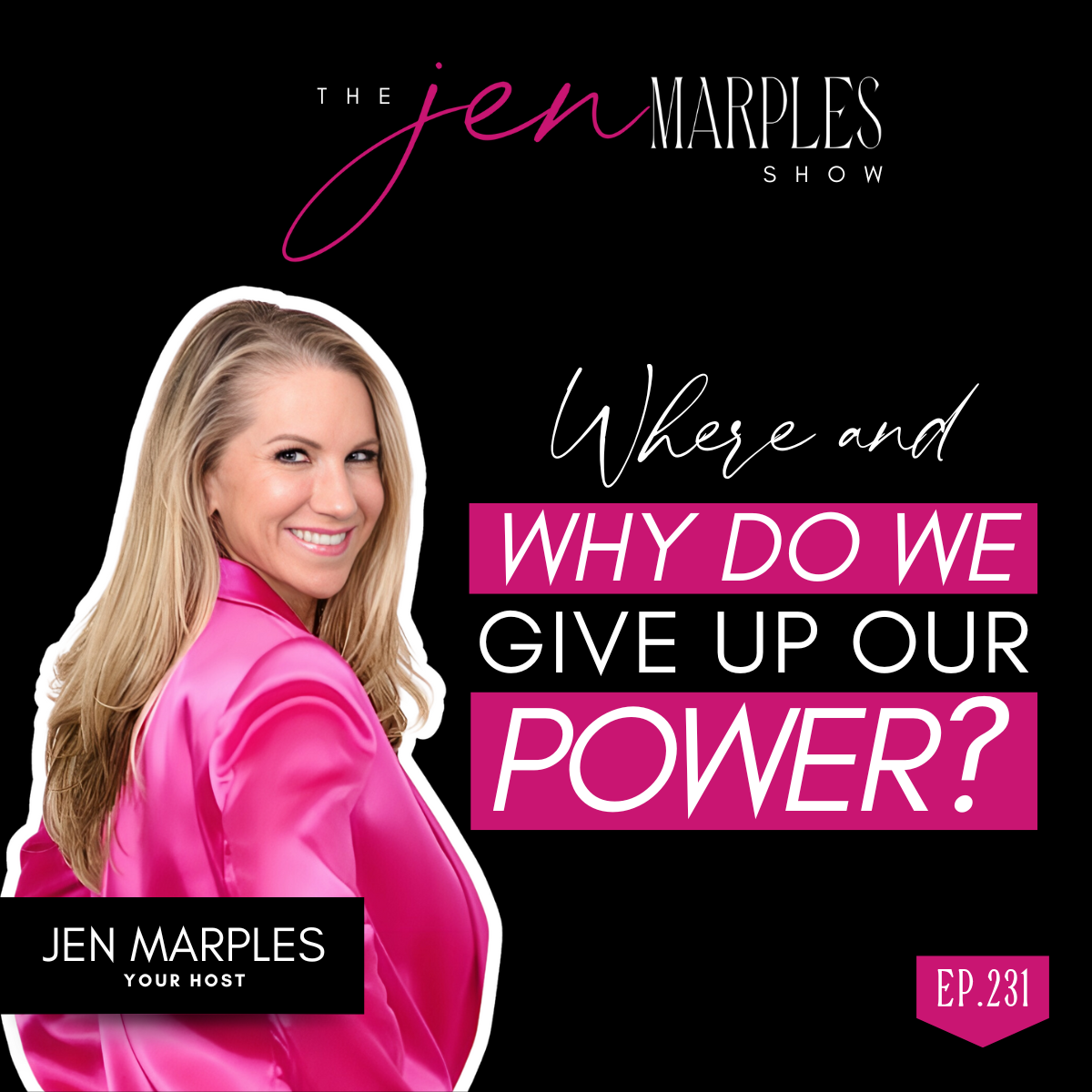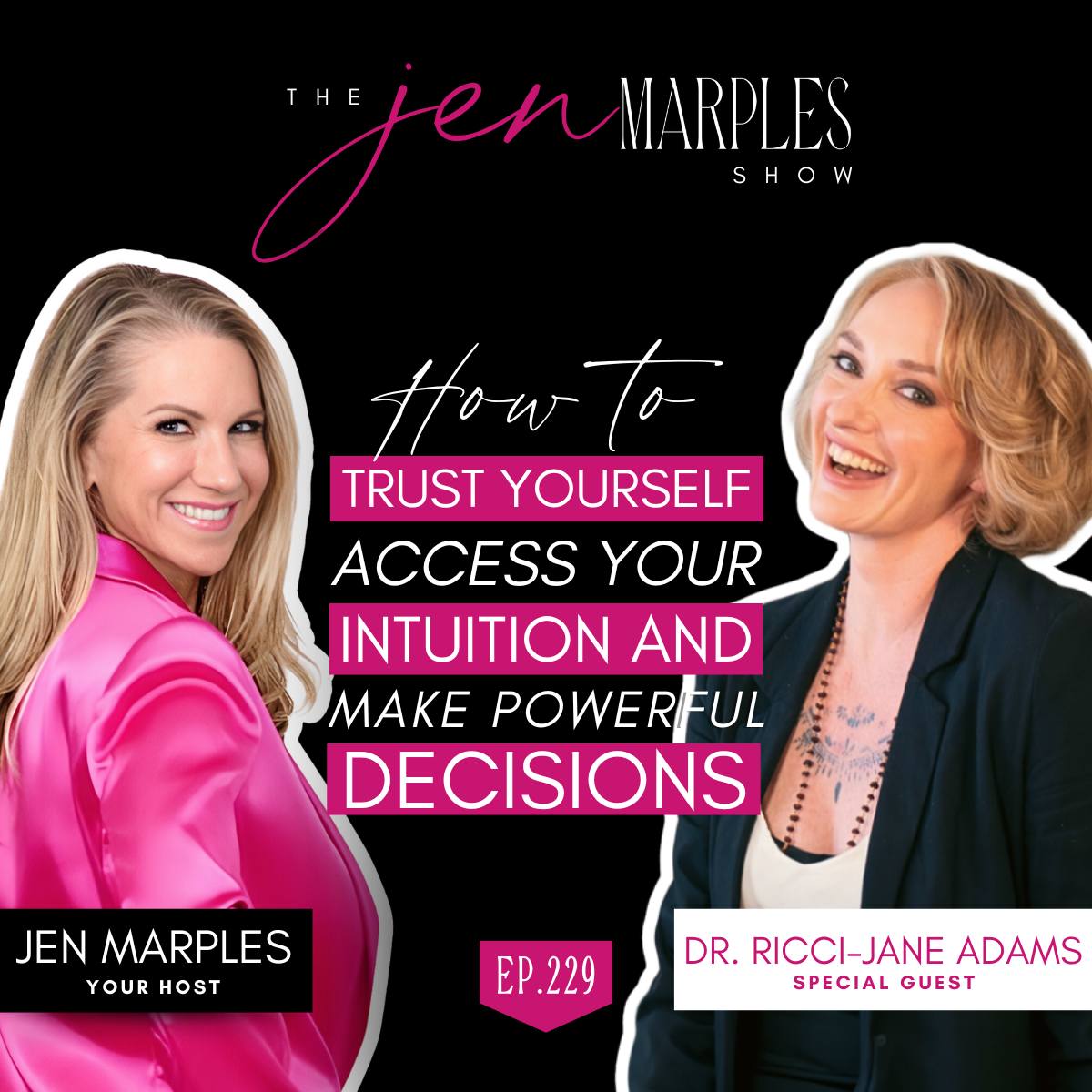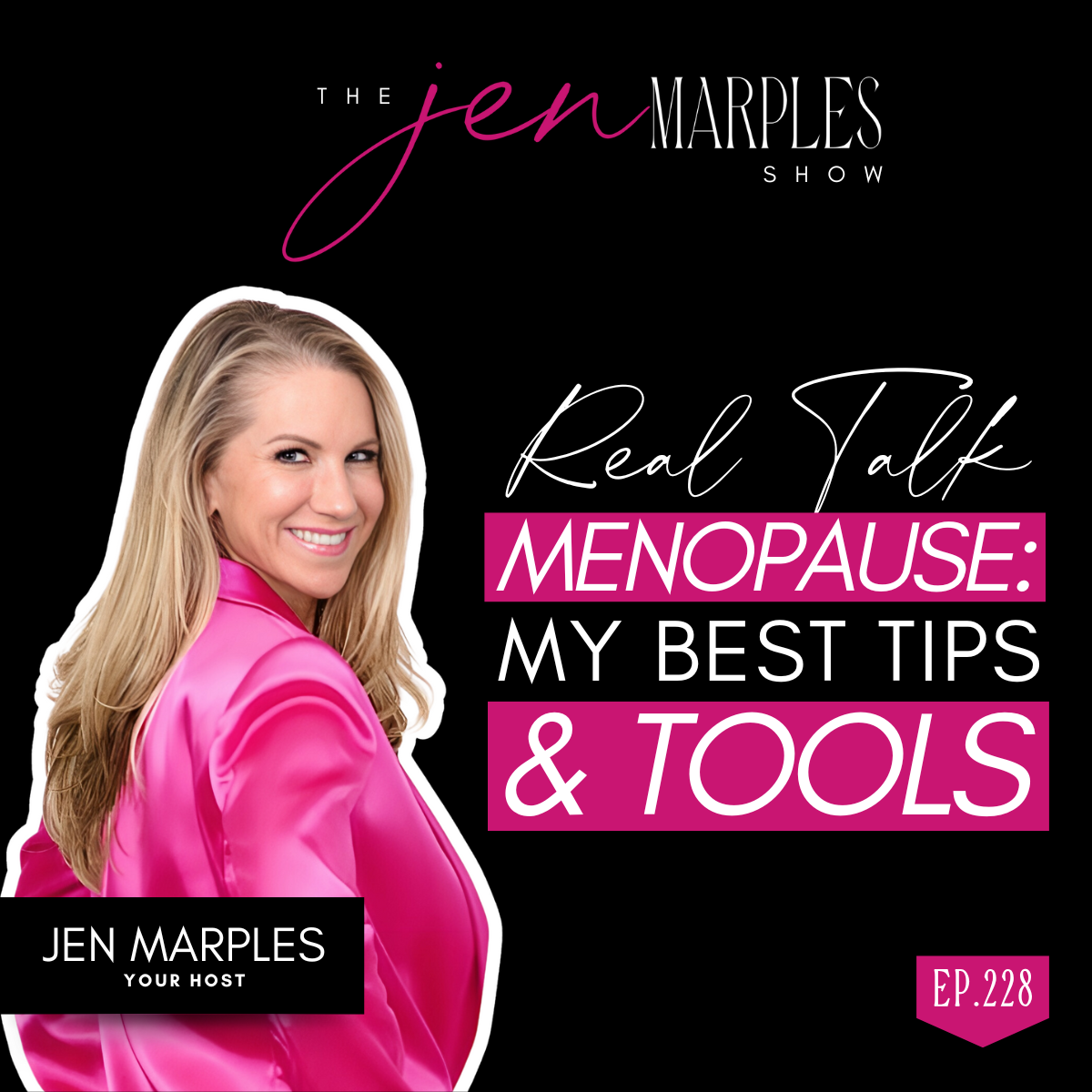
This Best Of compilation brings together the most essential menopause insights from four leading doctors who are changing the conversation around women’s midlife health: Dr. Suzanne Gilberg-Lenz, Dr. Stephanie Culver, Dr. Mary Claire Haver, and Dr. Vonda Wright.
From understanding the difference between perimenopause and menopause to mastering nutrition and workout strategies that actually work for midlife bodies, these expert segments provide the comprehensive roadmap every woman needs to thrive during this transition.
Whether you’re just starting to notice changes or are deep in the menopause journey, this episode cuts through the confusion with science-backed advice on hormones, symptoms, essential nutrition protocols, heavy lifting routines, and how to advocate for yourself with healthcare providers. No more suffering in silence or accepting that feeling terrible is just part of getting older!
Key Takeaways:
- The truth about when perimenopause really starts and why your symptoms might be getting dismissed
- How hormone therapy actually protects your brain and what the latest research reveals
- The hidden syndrome affecting 80% of menopausal women that most doctors don’t discuss
- Game-changing nutrition protocols that support your changing body and metabolism
- Why everything you learned about exercise is wrong after 40 and what actually builds strength
You’re Not Too F***ing Old! To Feel Fabulous!
Midlife Unleashed: 8 Expert Insights Every Woman Needs to Know About Menopause
When it comes to menopause, we’ve been left in the dark for too long. After years of whispers, confusion, and frustration, I knew we needed a real, raw guide to what’s happening in our bodies. So I brought together four of the most brilliant women doctors to break down the truth about midlife health.
What is Perimenopause vs. Menopause
Perimenopause is not a disease – it’s a natural transition that’s more complex than most women realize. Think of it as your body’s sophisticated reset button, typically starting in your late 30s or early 40s. It’s a gradual process where your ovarian function begins to change, bringing subtle shifts in your menstrual cycle, hormone levels, and overall body function.
The official marker of menopause is when you’ve gone a full 12 months without a menstrual period, usually happening around age 51. But here’s the kicker – your journey can start much earlier, and every woman’s experience is unique. Genetics play a massive role, with your mother’s menopause timeline often being the best predictor of your own.
The Real Symptoms of Perimenopause
Forget everything you’ve heard about menopause being just about hot flashes. The reality is far more complex and deeply personal. Mood swings that feel like emotional rollercoasters, unexpected anxiety, sleep disruptions, and sudden libido changes are just the tip of the iceberg. Many women describe feeling like they’re losing their mind, when in reality, their body is going through a profound hormonal transformation.
Physical symptoms can be equally challenging. Joint pain, vaginal dryness, skin changes, and metabolic shifts can catch women completely off guard. The most important thing to remember is that these symptoms are normal, valid, and absolutely manageable with the right approach and support.
Why Women Suffer in Silence
We’ve been conditioned to believe that pain is noble, that suffering is just part of being a woman. This toxic narrative has kept generations of women from seeking help, understanding their bodies, and demanding better healthcare. The medical community has historically dismissed women’s health concerns, particularly around midlife transitions, leaving us to struggle alone and in confusion.
It’s time to break this cycle. Suffering is not a badge of honor – it’s a signal that something needs attention. We’re living longer, working harder, and achieving more than ever before. We deserve to feel powerful, understood, and supported through every stage of our lives.
Hormone Therapy Benefits for the Brain
Hormone therapy has been shrouded in fear and misinformation for decades. That infamous study from 2002 that scared women away? It’s been completely debunked. Modern research shows that early hormone therapy can actually be incredibly protective, especially for brain health. For women who start hormone therapy within five years of menopause, there’s significant evidence of reduced dementia risk.
The key is personalized approach and timing. Hormone therapy isn’t one-size-fits-all, but for many women, it can be a game-changer in managing symptoms and protecting long-term health. It’s about understanding your individual risk factors, genetic predispositions, and working closely with a healthcare provider who truly understands midlife women’s health.
The Musculoskeletal Impact of Menopause
Estrogen does so much more than regulate reproduction – it’s a critical player in maintaining muscle and bone health. When estrogen declines, women can experience rapid muscle loss, decreased bone density, and increased inflammation. This isn’t just about looking fit; it’s about maintaining independence, preventing frailty, and ensuring quality of life as we age.
The musculoskeletal changes during menopause affect about 80% of women, with 25% experiencing significant challenges. Joint pain, increased risk of arthritis, and changes in body composition are real concerns that require proactive management through targeted exercise and nutrition.
Essential Nutrition for Midlife Women
Nutrition becomes increasingly critical during midlife. It’s not about restrictive dieting, but about nourishing your body with anti-inflammatory foods, adequate protein, and key nutrients. Fiber becomes your best friend, with research showing that women consuming over 25 grams daily experience better metabolic health, lower blood pressure, and reduced visceral fat.
Key nutritional focuses include limiting added sugars, ensuring adequate vitamin D, incorporating omega-3 fatty acids, and prioritizing whole, nutrient-dense foods. Supplements can help, but the goal is always to get nutrients from food first, creating a sustainable approach to midlife nutrition.
How to Advocate with Your Doctor
Gone are the days of accepting dismissive healthcare. Advocating for yourself means coming prepared, asking tough questions, and finding providers who truly listen. Bring research, track your symptoms, and don’t be afraid to seek a second opinion. Your health journey is deeply personal, and you deserve a healthcare partner who respects and supports your experience.
Look for providers who specialize in midlife women’s health, utilize resources like menopause.org’s physician locator, and trust your body’s signals. If a healthcare provider makes you feel crazy or dismissed, it’s time to find someone who will truly hear you.
Essential Workout Recommendations for Midlife Women
Forget everything you know about exercise. Midlife fitness is about building functional strength, not chasing an unrealistic body image. Lifting heavy weights, incorporating low-intensity base training, and adding high-intensity sprints can dramatically transform your metabolic health, muscle composition, and overall strength.
The sweet spot for building these habits is between 35-45 years old, but it’s never too late to start. Focus on compound movements, progressive overload, and consistent training. This isn’t about looking like an athlete – it’s about maintaining independence, preventing age-related muscle loss, and feeling powerful in your own skin.
The Bottom Line
Midlife isn’t a decline – it’s your power season. These doctors prove you’re not too old, too broken, or too anything to feel incredible.
You’re not just surviving midlife. You’re about to SLAY it. 💪
You’re Not Too F***ing Old! To Feel Fabulous!
Learn more about Jen Marples at https://www.jenmarples.com
Want to work with Jen? Book a complimentary 20-minute call HERE.
Follow Jen @jenmarples on Instagram, LinkedIn, TikTok and YouTube
Subscribe to Jen’s Newsletter
Unedited AI Transcript Here
CONNECT WITH DR. STEPHANIE M CULVER MD:
X ( Formerly Twitter)
CONNECT WITH DR. SUZANNE GILBERG-LENZ:
CONNECT WITH DR MARY CLAIRE HAVER:
CONNECT WITH DR VONDA WRIGHT:




